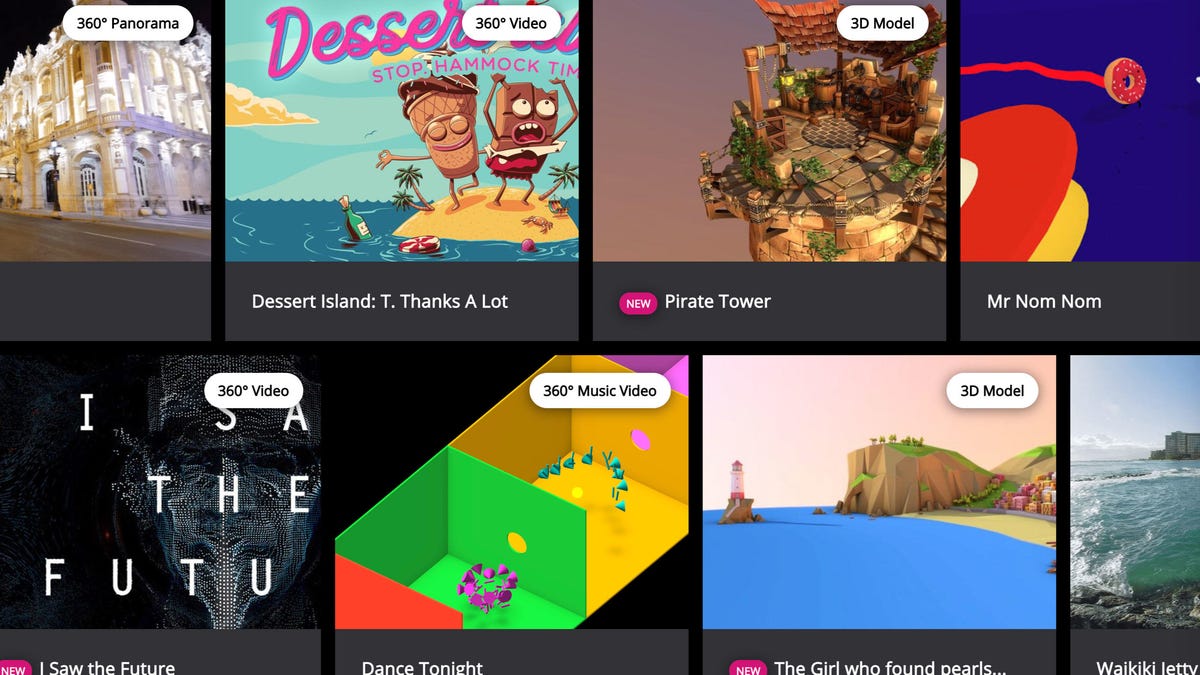HTC Vive headset taps into Firefox Reality, Mozilla's VR browser
It'll be a big boost for Firefox and web tech, if VR ever really catches on.

Mozilla promotes VR sites and activities available with its Firefox Reality browser.
HTC's Vive virtual reality headset will include Firefox Reality, giving a boost to Mozilla's web browser for VR devices and to its broader effort to build an immersive virtual realm on web technology that no single company controls.
Mozilla released Firefox Reality in 2018 for the Oculus Rift, HTC Vive, Google Daydream and Magic Leap One. Now, HTC Vive owners won't need to manually download the browser themselves, HTC and Mozilla said at CES 2019. Instead, Firefox Reality will be the Vive's default browser.
"By ensuring HTC devices have direct integration with a web browser, we make it easier for those creators and users," Mozilla said Monday in a statement. Vive users can still use other browsers and change the default if they want. Mozilla declined to disclose terms of the partnership.
Firefox once was second only to Microsoft's Internet Explorer in terms of web usage, helping promote the idea that the web was a neutral foundation, not the domain of one powerful company. But over the last decade, Google's Chrome grew to dominate browsing, and Mozilla's browser has failed to gain a significant foothold on mobile devices.
VR devices and their cousins for augmented reality offer Mozilla a chance to find a new foothold. But that's only if VR devices catch on widely, which so far they haven't.
Mozilla also has been instrumental in developing technology called WebVR and its broader successor, WebXR, which standardizes the use of web technology to create VR and AR content. If that effort succeeds, it'll be easier for developers to build software for multiple headsets and not have to recreate content separately for each one.
"Through our exciting and innovative collaboration with Mozilla, we're closing the gap in XR computing, empowering Vive users to get more content in their headset while enabling developers to quickly create content," HTC Vive Vice President Michael Almeraris said in a statement.
CES 2019: See all of CNET's coverage of the year's biggest tech show.
CES schedule: It's six days of jam-packed events. Here's what to expect.

